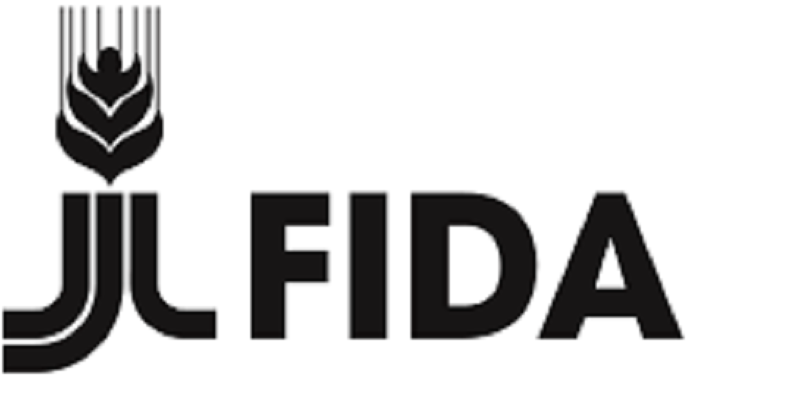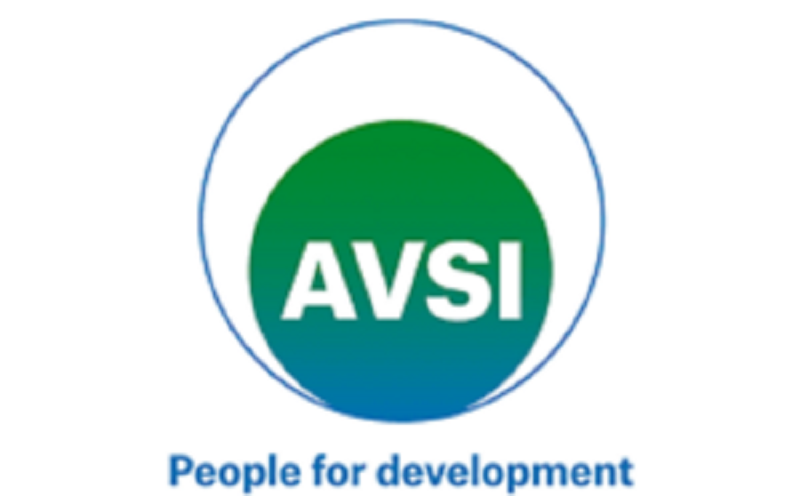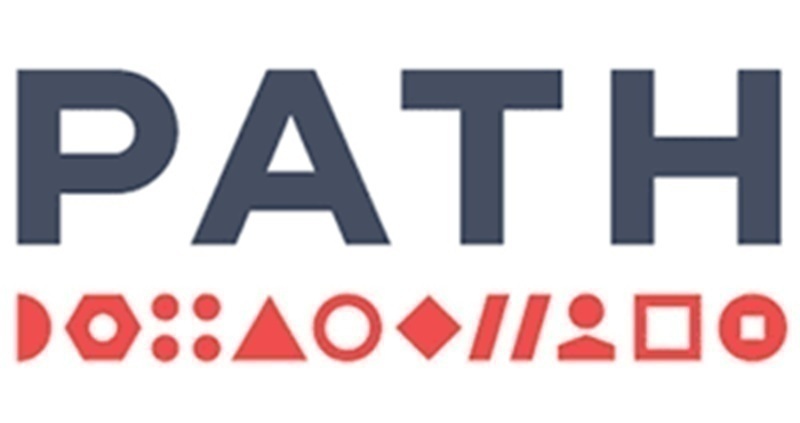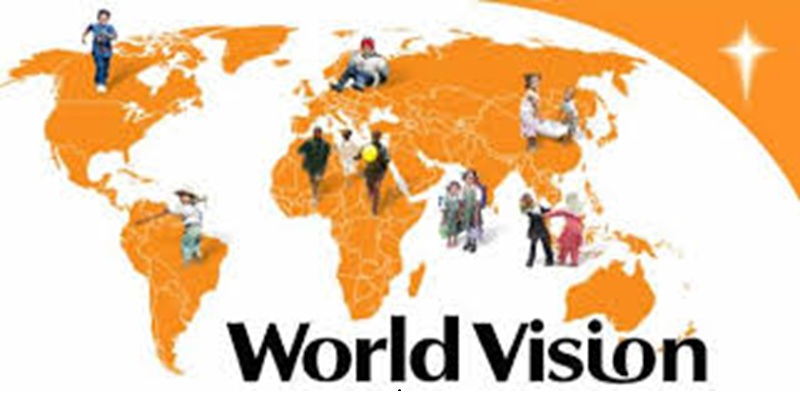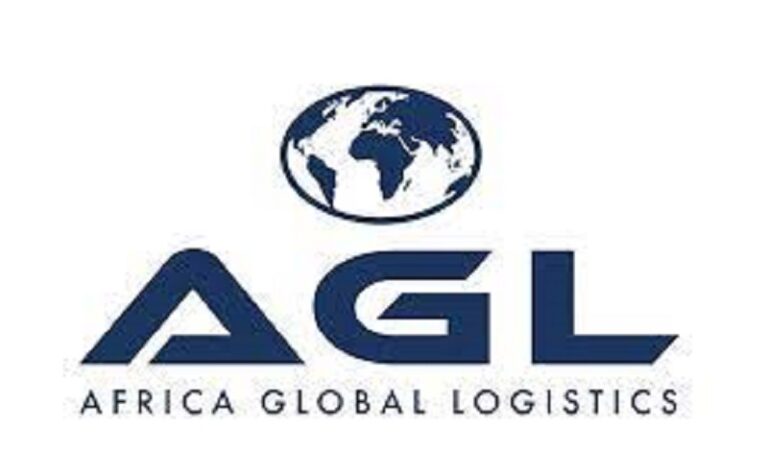Le Fonds international de développement agricole (FIDA) est une institution financière internationale et une agence spécialisée des Nations unies qui se consacre à l’éradication de la pauvreté et de la faim en milieu rural. Pour ce faire, il investit dans les populations rurales. Le FIDA finance des programmes et des projets qui accroissent la productivité agricole et augmentent les revenus ruraux, et plaide aux niveaux local, national et international en faveur de politiques qui contribuent à la transformation rurale.
Poste 1 : Gender and Social Inclusion Specialist (Local Recruitment in Cote d’Ivoire)
Organizational Setting
Applicants for vacancies in the National Professional Officer (NPO) category must be nationals of the country in which the position is located (Cote d’Ivoire). IFAD is committed to achieving gender diversity. Women are particularly encouraged to apply.
The International Fund for Agricultural Development (IFAD) is an international financial institution and a specialized United Nations agency dedicated to eradicating rural poverty and hunger. It does so by investing in rural people. IFAD finances programmes and projects that increase agricultural productivity and raise rural incomes, and advocates at the local, national and international level for policies that contribute to rural transformation.
The Strategy and Knowledge Department (SKD) provides expert guidance on IFAD’s strategic direction, thematic priorities, and technical quality of IFAD’s operations. It plays a critical role in providing technical expertise to operational teams to enhance development effectiveness, by generating and disseminating IFAD’s development knowledge and evidence on strategic themes and encouraging innovative application of cutting-edge global knowledge and evidence in IFAD investments to support countries tackle their most complex development challenges in fostering inclusive and sustainable rural transformation. SKD is composed of the (i) Environment, Climate, Gender and Social Inclusion Division (ECG); the (ii) Sustainable Production, Markets, and Institutions Division (PMI); and the (iii) Research and Impact Assessment Division (RIA).
ECG takes the lead in mainstreaming cross-cutting themes of environmental sustainability and climate change resilience, nutrition-sensitivity, gender equality and women’s empowerment and inclusion of rural youth and indigenous peoples through an integrated approach. The Division is the technical authority for each of these themes and:
(i) leverages global best practices to develop, update and implement the strategies, policies, procedures and products related to the aforementioned themes to ensure IFAD remains a trusted and valued partner;
(ii) collaborates with Regional Divisions in the development of technically sound programmes and operations to safeguard and to strengthen the quality of IFAD’s operations to improve impacts;
(iii) generates and disseminates IFAD evidence-based practices and knowledge on the mainstreaming themes, raises awareness and builds technical capacity, and supports national, regional and global policy engagement;
(iv) identifies and builds partnerships with key technical institutions of excellence, develops and maintains key thematic networks to assist IFAD operations;
(v) conducts thematic research and prepares reports on these mainstreaming themes for corporate use or positions papers;
(vi) leads mobilizing financing to support mainstreaming efforts and to scale-up operations.
ECG takes the lead in supporting the implementation of IFAD’s Gender Policy as well as mainstreaming crosscutting themes of environment and climate, nutrition, gender, youth, and indigenous peoples into IFAD’s portfolio, as well as implementing relevant policies in these areas, to strengthen the quality of IFAD’s operations and achieve improved impacts. ECG supports integration of the four corporate priorities of gender, nutrition, climate, and youth to demonstrate how they add value to each other and to the whole portfolio for more transformational outcomes. ECG contributes to the generation of evidence and knowledge on these cross-cutting themes and facilitates their use in IFAD projects and activities. In addition, ECG provides guidance and support to ensure the inclusion of groups with special needs and opportunities, particularly women, indigenous peoples, and rural youth as well as others into IFAD operations.
The Social Inclusion Analyst/Specialist works under the overall strategic, policy and management guidance of the Division Director and the Regional Director of the Regional Division to which s/he is mapped. S/he works under the direct supervision of the Lead Technical Specialist (Social Inclusion Cluster Coordinator), with dual reporting to the respective Country Director/Head of the IFAD Multi Country Offices.
The Social Inclusion Analyst/Specialist may be required to travel outside of their own country to perform the work of the Organization.
Job Role
The Social Inclusion Analyst/Specialist provides professional technical assistance and fosters knowledge management and partnership building, through an integrated approach, to increase gender equality, women’s empowerment, the inclusion of youth and indigenous people (social inclusion) and improved nutrition impact of IFAD’s portfolio (loans, grants, and policy engagement) related to these thematic areas. S/He works in close cooperation with the all Technical Specialist in the Social Inclusion Cluster as well as with other Technical Specialists and Country Programme Managers to ensure consistency, cohesion, and synergy in the application of technical advice and provision of programme development support facilitating knowledge flows and building of communities of practice.
Key Functions and Results
1.TECHNICAL AND COUNTRY PROGRAM ADVICE: On the basis of seasoned technical knowledge and analysis of current thematic conditions, emerging development challenges and the state of rural poverty at the assigned country level, the Social Inclusion Analyst/Specialist provides sound technical advice to improve the capacity of IFAD to address rural poverty, to enhance national government policies and programmes and to ensure IFAD is regarded as a trusted and valued partner facilitating the mainstreaming agenda and providing the technical advice on cross- cutting themes within his/her area of expertise. Accountabilities may include:
(i) Supporting the design and implementation of operational commitments and programs related to: (a) IFAD’s Policy on Gender Equality and Women’s empowerment; (b) IFAD Targeting Policy; (c) IFAD Policy on Engagement with Indigenous peoples; (d) IFAD youth action plan; (e) IFAD Nutrition Action Plan; (f) IFAD’s framework for implementing transformational approaches to the mainstreaming themes; and (g) IFAD’s Social, Climate and Environment Assessment Procedures.
(ii) Advising and technical backstopping of IFAD-financed projects and COSOPs;
(iii) Reporting on progress of projects, paying special attention to projects requesting special assistance during implementation; (iv) Supporting policy engagement on mainstreaming topics in the countries of the region.
2. KNOWLEDGE MANAGEMENT AND CAPACITY BUILDING: The Social Inclusion Analyst/Specialist enhances the development of viable and sustainable policy and project development at the country-level through seasoned technical knowledge sharing for his/her area of specialization. S/He will ensure country-level access to the latest sources of knowledge and innovation, strengthen national technical capacity, and establish new knowledge and advisory partnerships. S/he captures and uses more systematically IFAD’s field experience to better link impact evaluation to corporate and regional M&E work and integrate impact assessments, M&E and good practice findings into corporate learning opportunities to allow for cross-regional learning. Accountabilities may include:
(i) Collecting, documenting and reporting of good practices;
(ii) Developing and disseminating knowledge products, operational tools and guidelines; Assisting in impacts assessments of selected projects;
(iii) Supporting the development and management of network(s) of Social Inclusion and Nutrition focal points from IFAD-funded projects and practitioners at regional level, and contributing to IFAD global KM processes in coordination with the social inclusion team;
(iv)Facilitate and provide technical support on social inclusion and nutrition-sensitivity capacity development and training, through an integrated approach, to support project staff, national partners, and service providers.
3. PARTNERSHIP BUILDING AND RESOURCE MOBILIZATION: The Social Inclusion Analyst/Specialist establishes and maintains a network of peer contacts inside and outside IFAD to keep up-to-date on activities to support joint advocacy at the country level and for knowledge sharing to enhance the Fund’s profile as a highly competent and viable partner in development and mainstreaming cross-cutting themes into IFAD country programmes. Accountabilities may include:
(i) Identifying key organizations and institutions to assist IFAD-financed projects in Social Inclusion- related, Youth sensitivity-related and nutrition-sensitivity related assessments and analyses;
(ii) Liaising with national social inclusion and nutrition officers/focal points, and providing technical support and backstop, including linking up these focal points to local expertise, as required.
(iii) Assisting in organizing country-level events on IFAD-financed project experiences and results related to social inclusion and nutrition-sensitivity with the country partners.
4. MONITORING, EVALUATION AND REPORTING: The Social Inclusion Analyst/Specialist contributes to managing the monitoring, evaluation and reporting of technical activities and components of programs/projects to enhance country level programme and funding decisions based on accurate technical data. Accountabilities may include:
(i) Participating in selected design, supervision and impact assessments missions;
(ii) Contributing to evaluation processes as required;
(iii)Contributing to social inclusion and nutrition aspects of portfolio reviews and analysis.
5. MANAGERIAL FUNCTIONS: The Social Inclusion Analyst/Specialist is accountable for integrity, transparency, and equity in the management of IFAD resources. This may include management of consultants and staff under his/her purview.
Key Performance Indicators
Assignments require the provision of seasoned technical expertise and input for the full programme/project cycle as well as in knowledge sharing with peers and counterparts. The work goes beyond technical analysis and synthesis to include substantive inputs to project methodology and design of projects, knowledge sharing among peers and counterparts to enhance cooperation, complementarity and synergy and monitoring and evaluation to measure and report on lessons learned and best practices. The work is considered moderately complex requiring in-depth technical analysis and reporting. Typically operating as an Analyst/Specialist in an IFAD regional centre the Social Inclusion Analyst/Specialist’s work may be reviewed for technical accuracy, but more typically is reviewed for achieving the established work plan.
Working Relationships
The work relationships of Analysts/Specialists are primarily for the exchange of information regarding development projects. Information-gathering and exchange in support of studies and thematic assignments may also include identifying reliable sources and establishing guidelines for obtaining information on national and sub-regional; conditions and to convey methodological approaches and operational experience for implementation of activities undertaken on behalf of the Fund.
Job Profile Requirements
Organizational Competencies – Level 1
- Strategic thinking and organizational development: Personal influence
- Demonstrating Leadership : Personal leadership and attitude to change
- Learning, sharing knowledge and innovating: Continuously seeks to learn, shares knowledge and innovates
- Focusing on clients: Focuses on clients
- Problem solving and decision making: Demonstrates sound problem solving and decision making ability
- Managing time, resources and information: Manages own time, information and resources effectively
- Team Work: Contributes effectively to the team
- Communicating and negotiating: Communicates effectively: creates understanding between self and others
- Building relationships and partnerships: Builds and maintains effective working relationships.
Education:
Level – Advanced university degree from an accredited institution in a technically relevant area. The advanced university degree may be substituted by a first university degree and at least four (4) additional years of relevant professional experience over and above the minimum number of years of experience as stipulated below.
Areas – social sciences, gender studies, sociology, economics, human or development geography, rural development, nutrition/public health.
Degree must be an accredited institution listed on https://www.whed.net/home.php
Work experience:
- At least 5 years progressively responsible experience in, and demonstrated understanding of, poverty analysis, social inclusion (gender equality and women’s empowerment, inclusion of youth and indigenous peoples) and improved nutrition issues in rural development initiatives.
- Two (2) years preferably in the United Nations or an international financial institution, or another multi-cultural organization or institution or a national organization providing support on a global scope.
- Position-specific experience: In-depth technical expertise, demonstrated by substantive work experience, and solid understanding of social inclusion and improved nutrition issues and impacts on rural development, ideally acquired by working on rural development or poverty reduction projects. Access to networks of technical and professional resources and expertise which can be brought to bear to IFAD’s work on gender and social inclusion.
Languages:
- Required English and French (4 – Excellent)
- Desirable: Spanish, or Arabic
- Position-specific requirement: Spanish. Portuguese and French skills are an additional asset
Job role specific:
- Cross-cutting themes – Gender and social inclusion, Expertise specific to gender and social inclusion cross-cutting theme (e.g. youth, targeting strategies);
- Social & Environmental Safeguards, Technical knowledge in Environmental and Social Safeguards
- Knowledge strategy & management, Extensive expertise in knowledge management & dissemination strategies; technical expertise related to roles in Knowledge Management (e.g. development and dissemination of knowledge products and learning);
- Project/Programme mgmt (incl. coordination, design, development), Know-how in Project design, implementation and evaluation;
- Advocacy, Ability to leverage IFAD knowledge and/or communication materials to maintain and promote constructive dialogue around IFAD’s vision and strategic priorities to external actors;
- Policy dialogue, Know-how in the representation of IFAD as a trusted and strategic partner; effective consultations with IFAD counterparts — line ministries and governmental bodies at all administrative levels, donors, civil society;
- Collaboration, Successfully work toward a common goal with others by communicating clearly, actively listening to others, taking responsibility for mistakes, and respecting different perspectives of stakeholders;
- IFAD governance & mandate, In depth knowledge of IFAD’s governance structure, mandate, strategic priorities and technical work;
- Analytical skills, Outstanding ability to analyse and synthesize qualitative and/or quantitative information from a variety of sources and filter out key insights and recommendations;
- Basic ICT & digital fluency, Expertise relevant to the specific role (e.g. in-depth, computer information systems, including micro-computer operating systems software, hardware and applications software and other office technology equipment), and-user computing configuration management.
Other Information
Applicants should note that IFAD staff members are international civil servants subject to the authority of the President of IFAD. In accordance with IFAD’s Human Resources Policy, staff members are subject to the authority of the President who can decide to assign them to any of the activities of the Fund.
In the interest of making most cost effective use of funds and resources, we are only able to respond to applicants who are short-listed for interview. Candidates who do not receive any feedback within three months should consider their application unsuccessful.
Candidates may be required to take a written test and to deliver a presentation as well as participate in interviews.
Applicants for vacancies in the National Professional Officer (NPO) category must be nationals of the country in which the position is located (Cote d’Ivoire). IFAD is committed to achieving gender diversity. Women are particularly encouraged to apply.
Poste 2 : Country Technical Analyst (Agronomy) – Local Recruitment in Cote d’Ivoire
Organizational Setting
Applicants for vacancies in the National Professional Officer (NPO) category must be nationals of the country in which the position is located (Cote d’Ivoire). IFAD is committed to achieving gender diversity. Women are particularly encouraged to apply.
The International Fund for Agricultural Development (IFAD) is an international financial institution and a specialized United Nations agency dedicated to eradicating rural poverty and hunger. It does so by investing in rural people. IFAD finances programmes and projects that increase agricultural productivity and raise rural incomes, and advocates at the local, national and international level for policies that contribute to rural transformation.
The Strategy and Knowledge Department (SKD) provides expert guidance on IFAD’s strategic direction, thematic priorities, and technical quality of IFAD’s operations. It plays a critical role in providing technical expertise to operational teams to enhance development effectiveness, by generating and disseminating IFAD’s development knowledge and evidence on strategic themes and encouraging innovative application of cutting-edge global knowledge and evidence in IFAD investments to support countries tackle their most complex development challenges in fostering inclusive and sustainable rural transformation. SKD is composed of the (i) Environment, Climate, Gender and Social Inclusion Division (ECG); the (ii) Sustainable Production, Markets, and Institutions Division (PMI); and the (iii) Research and Impact Assessment Division (RIA).
PMI provides technical support to IFAD Country Programs to ensure the proper application of corporate quality standards required for achieving development results and impact in key thematic areas, including food production systems (i.e. fisheries, livestock, agronomy), land, natural resources management, water and rural infrastructure, financial services, rural markets and enterprises and rural institutions. It contributes to the generation of evidence and knowledge on these themes and facilitates their use in IFAD country programs and activities.
The Technical Analyst/Specialist works under the overall strategic, policy and management guidance of the Director PMI and the Regional Director responsible for the country to which s/he is assigned. S/he is directly supervised by the Lead Regional Technical Specialist (Regional Technical Lead (RTC) under the new model).
Technical Analysts/Specialist (TA/S) may be required, occasionally, to travel outside of their own country to perform the work of the Organization.
The TA/S (Agronomy) position is located in WCA Division, the incumbent works under the direct supervision of RTC.
Job Role
The Technical Analyst/Specialist serves as IFAD’s national technical expert in the designated area applied to agriculture and rural development. S/he is responsible for analytical support to programme activities and performs functions related to IFAD’s mandate of improving rural food security and nutrition and enabling poor rural men and women to overcome their poverty, and to overall efforts of IFAD within the UN Common System to increase sustainable development capacity in developing countries.
S/he works in close collaboration with the RTC and country teams, and other programme management and technical staff to ensure consistency, cohesion, and synergy in the application of technical support and provision of programme development support.
The incumbent works in the area of Agronomy.
Key Functions and Results
1.COUNTRY PROGRAMMES AND PROJECT DESIGN: The Technical Analyst/Specialist provides technical support in the designated area applied to agriculture and rural development and supports the quality enhancement of project designs based on best practices and country knowledge. Working closely with other technical specialists and based on a planning exercise undertaken jointly between SKD and PMD, s/he supports PMI’s Project Technical Leads to enhance the overall quality of projects across various thematic areas. S/he also provides targeted support to select project components on technical themes relevant to IFAD, contributes to background documents and preparatory activities, participates in design missions, and provides inputs to aide memoire and project design documents. S/he provides inputs into Results-based Country Strategic Opportunities Programme (COSOP) and Country Strategy Notes (CSN) as required.
2. PROJECT SUPERVISION, IMPLEMENTATION SUPPORT AND COMPLETION: The Technical Analyst/Specialist provides technical support in the designated area. S/he focuses primarily on the readiness of technical elements during start-up and contributes to capacity building activities in her/his area of technical expertise. S/he supports Regional Technical Specialists in regular supervision, implementation support and project completion activities as required.
3. TECHNICAL ANALYSIS: The Technical Analyst/Specialist undertakes analyses of technical themes relevant to IFAD and provides inputs to technical briefs, reports, and presentations to facilitate IFAD’s policy engagement particularly in the designated area. S/he analyzes and draft reports on innovations and developments for knowledge sharing and scaling up and participates in relevant policy meetings and events as required. S/he analyzes and identifies potential partnership opportunities based on IFAD’s comparative advantage vis-a-vis other development partners/institutions.
4. KNOWLEDGE MANAGEMENT: The Technical Analyst/Specialist gathers evidence based data from projects to contribute to the generation and dissemination of knowledge, good practices and innovations generated through loans and grants in the region on technical themes relevant to IFAD. S/he contributes to relevant knowledge management initiatives and products in coordination with the PMI Knowledge Management Officer and contributes to communities of practice as required.
5. MANAGERIAL FUNCTIONS: The Technical Analyst/Specialist is accountable for IFAD core values and code of conduct, including integrity, transparency, and equity in the management of IFAD resources.
Position Specifics:
The Technical Analyst/Specialist (Agronomy) provides technical support in the area of Agronomy and supports the quality enhancement of project designs based on best practices and country knowledge and contributes to the capacity building activities. The incumbent undertakes analyses of technical themes relevant to IFAD and provides inputs to technical briefs, reports, and presentations to facilitate IFAD’s policy engagement particularly in the area of Rural Fnance.
Key Performance Indicators
Technical analysis and synthesis of information and data, including database management, creates the foundation for IFAD’s decision-making and quality of policy and programme advice provided to regional staff and/or the government. Analytical documents and linked monitoring frameworks are used in the development and evaluation of IFAD’s country programme. Thus, the Technical Analyst/Specialist supports IFAD’s reputation for capacity and for programme delivery and enhances its recognition as a reliable development partner. S/He also supports the capitalization and dissemination of thematic knowledge from the ongoing loans and grants in the region and delivers in-country capacity building.
Working Relationships
In the context of programme development and delivery, the Technical Analyst/Specialist ensures the exchange of technical information as well as builds and maintains collaborative working relationships with counterparts and other partners to enhance consistency and reliability in the provision of development assistance to the governments, particularly in the designated area applied to agriculture and rural development. In work relationships with counterparts, s/he establishes and maintains relationships and projects the image of IFAD as a credible/reliable partner striving for harmonization of development activities. S/He facilitates programme/project logistics and administration with local authorities as required. The Regional Technical Lead gives direct guidance to the Technical Analyst/Specialist to ensure optimum support from PMI to the programme delivery of the Regional Division.
Job Profile Requirements
Organizational Competencies – Level 1
- Strategic thinking and organizational development: Personal influence
- Demonstrating Leadership : Personal leadership and attitude to change
- Learning, sharing knowledge and innovating: Continuously seeks to learn, shares knowledge and innovates
- Focusing on clients: Focuses on clients
- Problem solving and decision making: Demonstrates sound problem solving and decision making ability
- Managing time, resources and information: Manages own time, information and resources effectively
- Team Work: Contributes effectively to the team
- Communicating and negotiating: Communicates effectively: creates understanding between self and others
- Building relationships and partnerships: Builds and maintains effective working relationships
Education:
Level – Advanced university degree from an accredited institution
Area: Finance, economics, business administration, development economics, agronomy and/or related fields
Degree must be an accredited institution listed on https://www.whed.net/home.php
Work experience:
- At least three (3) years’ progressively responsible professional experience
- Position specifics: Providing technical advice and expertise on agronomy in the context of agricultural and rural development projects. Ability to share technical guidance/knowledge at the governmental and peer levels and programme staff in the development of viable programme activities. Experience in policy frameworks related to agronomical isues and agricultural markets is an asset.
Languages:
- Required English and French (4 – Excellent)
- Desirable: Spanish or Arabic
Skills:
Job role specific:
- Topical expertise – Programme Management for Agricultural Development, Expertise specific to position, e.g., in agricultural and rural development, policy-oriented, programme based pro-poor approaches, results-based agriculture rural development projects, country-specific knowledge, migration, etc.;
- Knowledge and grant Management, Technical expertise in implementing and reinforcing knowledge management and grant operations principles and practices in core work streams through a combination of processes, tools and incentives, including improved visibility, relevance and accessibility of knowledge products for external audiences and in operations;
- Programme/Project development, management, Know-how in Programme/Project development, implementation, management;
- Policy dialogue, Know-how in the representation of IFAD as a trusted and strategic partner; effective consultations with IFAD counterparts — line ministries and governmental bodies at all administrative levels;
- Data management, Data collection, cleaning, transformation and consolidation ; data-base architecture & development ; data presentation;
- IFAD partners, Knowledge of IFAD’s partners’ functioning and mandate , such as the public sector (e.g. governments and policy, institutions and system), non-state actors (NGOs, CSOs, Foundations, etc.) and private sector actors;
- Analytical skills, Outstanding ability to analyse and synthesize qualitative and/or quantitative information from a variety of sources and filter out key insights and recommendations;
- Project coordination, Identification of key-priorities, ability to work with others, coordinate and structure work to meet deadlines and adjustment of workplan/resource allocation when needed, identification and management of project-related risks;
- Verbal communication, Clear, succinct and convincing verbal communication; highly professional, balanced and diplomatic language;
- Written communication, Clear, succinct and convincing written communication in the language needed for specific role ; highly professional, balanced and diplomatic language (e.g. for drafting of position papers, briefings, etc.);
- Risk management (e.g. reputational), Identification and assessment of potential liabilities and risks in IFAD’s activities, particularly vis-à-vis third parties; ability to handle risks via contingency and mitigation strategies.
Position specifics:
- Agronomy, Expertise in inclusive rural finance: i.e. pro-poor rural and agricultural financial services (including savings, credit, insurance, payments, remittances, etc.), customer demand and capacities, financial service providers, financial systems and markets, and policy and regulations (micro, meso and macro level adapted support);
- Project/Programme management (incl. coordination, design, development), Know-how in Project design and evaluation;
- Problem solving, Strong systemic and structured thinking, ability to identify and dissect problems into components and formulate a comprehensive set of creative viable and sustainable solutions and strategies
- Synthesis, Outstanding ability to synthesize and simplify complex technical information for a variety of (non-technical) audiences.
Other Information
Applicants should note that IFAD staff members are international civil servants subject to the authority of the President of IFAD. In accordance with IFAD’s Human Resources Policy, staff members are subject to the authority of the President who can decide to assign them to any of the activities of the Fund.
In the interest of making most cost effective use of funds and resources, we are only able to respond to applicants who are short-listed for interview. Candidates who do not receive any feedback within three months should consider their application unsuccessful.
Candidates may be required to take a written test and to deliver a presentation as well as participate in interviews.
Applicants for vacancies in the National Professional Officer (NPO) category must be nationals of the country in which the position is located (Cote d’Ivoire). IFAD is committed to achieving gender diversity. Women are particularly encouraged to apply.

